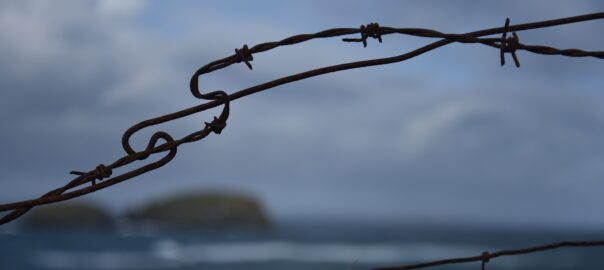This is a week of momentous anniversaries, of the Moon Landing and also of a significant escalation of unrest in Northern Ireland, including two deaths in controversial circumstances.
The call-out for poetry for Issue 2 of Black Bough Poetry, for Imagist poems on the theme of the Apollo mission, prompted me to write three poems (one in Ulster Scots). One of these, ‘Moon, Landing’, is in the issue and another is here below. I wanted to consider the context in which I experienced the Moon Landing, and anniversaries which make us reflect on progress and also how we deal with memories, and with events, resolved or unresolved.
FIRST DEATH OF THE TROUBLES (occurred Monday, 14th July 1969)
The gabardine they wore was a very dark green
And to McCloskey it might well have seemed
That the baton that blocked out the light
Had the same slow-motion lift
– the same sense of huge heft
held back till its leash is slipped −
As Apollo’s Saturn, climbing my tv screen
On the Wednesday afternoon,
Launched with such presumption, such élan.
Then the descent: the change-all, epochal event.
Francis McCloskey (67) died on Monday, 14th July 1969, one day after being found slumped, with a head wound, in a doorway in Dungiven in the wake of disturbances. The Royal Ulster Constabulary stated that he had been hit by a stone. There were allegations from other people that he had been batoned by members of the R. U. C. No definitive conclusion has been reached.
Samuel Devenny (42) died on 17th July 1969 from injuries received when he was batoned in his home by members of the Royal Ulster Constabulary on 19th April. The Police Ombudsman reported on the incident in 2001 here
The Apollo 11 Moon Mission was launched on 16th July and the moon landing happened on 20th July.
Last autumn I wrote in Wales Arts Review about a BBC2 documentary, “Troubles: the Life After” which contains, alongside accounts of deep suffering, impressive testimonies to human resilience and the capacity to heal. I wrote a poem inspired by one person’s story. I stress inspired by. It is not a version of, nor an account of, that experience. It’s something created from several elements, aiming to capture some sense of the impressive movement towards wholeness, achieved despite trauma.
The poem was published in The Bangor Literary Journal, Winter 2018 edition.
SHOOT
Winter came early for that girl
When the unreturning brother
– the endlessly prevented youth –
Was thrown first in a ditch
And then a grave.
She was the Winter’s girl,
Wearing its icy dress,
So when she saw one parent
Smash the other’s face into a wall
She wasn’t fazed. She understood how well
The rounded skull fits to the palm;
How deep the need to make pain visible since he
Had been hooded when they tortured him.
But she − to Mammy and Daddy both −
She had become
As faint as frost on glass.
Then even the mirrors emptied.
A neighbour, meaning to be kind,
Had asked her to help him set December bulbs,
Late possibilities. She’d cupped a Winter White,
A cranium, papery-skinned and primed,
But when his back was turned
She’d plunged the bulb in upside down,
Cursing it to torment itself
In growing towards the dark.
Since she was a murderer too
She sentenced herself to drink till she was sick
On school-nights out beyond the playing fields.
Thirteen,
And only the cold would do.
But a long dormancy
Can keep something alive.
Forty years on, even the Winter tired
Of cold. It dis-adopted her,
Heading for Spring
When she shouldered her dying mother
And felt how well that heavy head
Fitted the hollow below her collar-bone,
In that embrace sensing
A possibility, though late.
https://www.walesartsreview.org/tv-troubles-the-life-after/
